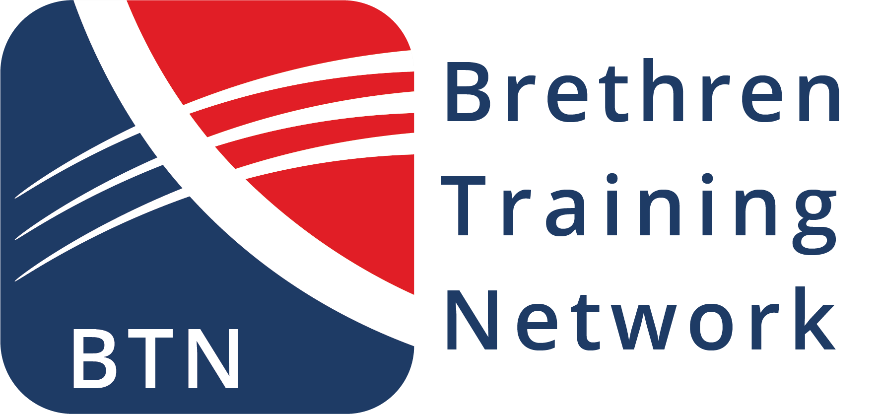P = Presenter, F = Facilitator, R = Room
Wednesday-June 1
1. Formal Training – Ministry Internships (P – Joel Hernandez / Russell Thorp, F – Abraham Thomas, R – A)
2. Grass Roots Training – Training Disciples (P – Frederic Walraven / Mulugeta Ashagre, F – Erica Raigne, R – B)
3. Preaching – Training Preachers (P – Ivan Chow, F – Allan McKinnon, R – C)
4. Theology – Ways of Knowing (P – Ian Payne, F – Mark Davies, R – F)
5. Public Faith – Gender (P – Ben Mathew, F – David Smith, R – Auditorium)
Thursday-June 2
1. Formal Training – Accreditation Requirements (P – David Smith, F – David Power, R – A)
2. Grass Roots Training – Mentoring Others (P – Christian Ramirez, F – Frederic Walraven, R – B)
3. Preaching – Pitfalls of Interpretation (P – Raju Kunjummen, Sunny Philip, R – C)
4. Theology – Eschatology (P – Xavier Lakshmanan, F – Hadyn Marshall, R – F)
5. Public Faith – History Today (P – Tim Grass, F – Neil Summerton, R – Auditorium)
Friday-June 3
1. Formal Training – Funding & Communication (P – Russell Thorp, F – Joel Hernandez, R – A)
2. Grass Roots Training – Training Elders (P – Alex Strauch, F – Ian Burness, R – B)
3. Theology – Holy Spirit (P – Allan McKinnon, F – Xavier Lakshmanan, R – C)
4. Public Faith – Creation Care (P – Mark Davies, F – Christian Ramirez, R – Auditorium)
Elective Presenters and Outlines
Wednesday-June 1
Formal Training – Ministry Internships
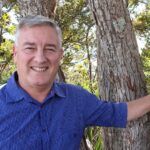
Russell Thorp (NZ)
(Dip Tch, Dip Th, BMin, MTh) and Pearl Thorp.
I was born in Papua New Guinea to missionary parents working in the Sanduan Province with CMML. I currently attend Lincoln Road Bible Chapel in Auckland having served there as an Elder and Chairman of Elders. My background is in mission’s mobilisation, teaching and theological education with some business experience in running motels (Auckland) and trucking company logistics (PNG).
I have been the Dean of Studies at Christian Leader’s Training College (a large interdenominational Bible College in PNG that now offers fully accredited degrees), was senior lecturer and formed (with Ian Payne the Principal) the Internship Programme running it through Pathways College of Bible and Mission, was Dean of Undergraduate Studies at Carey Baptist College, and Missions Director of the NZ open Brethren churches (9 years).
I took on the role of Executive Director of LeaDev-Langham in February 2020 and am enjoying it.
My role in LDL is to facilitate its mission and vision by giving leadership and attending to fundraising and growing volunteer support: to see the people of God in Asia Pacific equipped and engaged in mission through servant leaders who teach/ preach and apply the Word of God appropriately in their context.
I enjoy playing golf, kayaking and hunting when I can.
My wife manages Oliveshoots, an early childhood centre attached to Laidlaw College in Auckland. We have 4 adult children.
Resources
Communications and Marketing for Training Institutions
Support Models for the African Churches
Grass Roots Training – Training Disciples
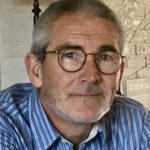
Frederic Walraven (Netherlands)
Frederic Walraven and his wife Siglinda are both from the Netherlands. Together they have three children and three grandchildren. They have lived in Switzerland where Frederic worked as mechanical engineer. After seven years they made a career switch to become missionaries to Cameroon where they served for fourteen years in biblical teaching and church planting. Since 2009, they are based again in the Netherlands from where Frederic has an international ministry as teacher and trainer. He earned an MA in Biblical Studies at ACCS -Sydney and serves on the board of the IBCM Network.
Outline
From our conversations with – especially young – people in our network we learn that the need of the hour is training and discipleship at the grassroots level. People are looking for personal and intentional accompaniment that will foster spiritual growth. This is where a spiritual mentor comes in.
A relationship between a disciple and their mentor is a consistent investment aiming at a specific goal, namely, maturity in Christ. The disciple will be challenged in all areas of life and observes the life of the mentor who models Christ. To reach our goal we should be intentional and be prepared for a long-term investment. Instant solutions won’t work. Biblical discipleship is training on the job. It concerns all areas of life and envisions transformation into Christlikeness through regular life changing encounters. Discipleship should focus on the mind, the heart, and the will.
Ideally discipleship is grounded in the local church where the disciple finds a healthy environment to continue to grow and to serve. Each believer will be challenged to disciple someone who is less mature or seek to be accompanied by someone who is more mature. Creating a discipleship culture within the church will ultimately mean that the fruit of discipleship will flow into the local church.
This elective will focus on training disciples and will challenge participants to start a disciple-mentor relationship and to implement a discipleship culture in their church. We will look at four different training phases: 1. Come and See; 2. Follow Me; 3. Be with Me; 4. Remain in Me. We will also consider key elements in the process of making disciples like, Discipline, Accountability, and Structure. The elective content will be illustrated with practical examples from our work fields.
During the conference there will also be an elective with a special focus on mentoring.
Preaching – Training Preachers

Ivan Chow (Singapore)
Ivan serves as Senior Pastor and Elder at Bethesda Church Bukit Arang (bukitarang.church) in Singapore, a church committed to growing gospel communities in Singapore and the Asia-Pacific region through the clear & faithful proclamation of God’s Word.
He trained as an engineer at Imperial College London and Stanford University before working to develop business in the ports industry in Europe, Central America and South-east Asia. He subsequently trained for Christian ministry (BDiv) at Moore Theological College, Sydney.
He is involved in preacher training in the following ways: First, as a director at the Evangelical Theological College Asia (etcasia.edu.sg). Second, he leads the PITH Preachers’ Fellowship which aims to equip and train preachers for Asian Brethren Assemblies. Third, he trains preachers (lay and paid workers) in his local church, having trained about 60 people in the past 4 years.
He is married to Agnes and they have eight young children.
Outline
The aim of this elective is to:
a) enthuse the people who attend to invest in preacher training at their local churches and training institutions
b) to give some ideas on how to go about doing it.
I’ll be speaking from my experience from training preachers at the local church level and at the seminary level. Here are some of the topics that will be covered:
a) The need for preacher training
b) The process of preacher training
c) What should be included in preacher training
d) A case study: How I’ve done it at my local church and the PITH Preachers’ Fellowship
e) Go-Preach – Setting up preacher training in your region
Theology – Ways of Knowing
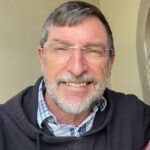
Dr Ian Payne (NZ)
Dr Ian Payne is Executive Director for Theologians Without Borders and Interim Pastor of Eden Community Church, Auckland, New Zealand. He was formerly Principal and Head of Theology, South Asia Institute of Advanced Christian Studies (SAIACS), Bangalore, India, where he taught systematic theology for over twenty years. He is author of Wouldn’t You Love to Know? Trinitarian Epistemology and Pedagogy. He is married to Judith and they have three daughters and five grandchildren.
Resources
Ways of Knowing
Outline
This elective on ‘Ways of Knowing’, links Jesus’ teaching and Trinitarian insights to ways of knowing in our multi-religious contexts. We will consider:
1. Jesus and Ways of Knowing
Matt 7:7-10 Ask, Seek and Knock
2. Ways of Knowing and the Religious spectrum
3. Ways of Knowing and Western Thinking
4. A Theology of Ways of Knowing
Public Faith – Gender

Dr Ben Mathew (USA)
Ben is a native of Southern Ontario, Canada and was involved in several ministries in his home church and community. Ben received his bachelor’s degree in Biblical Studies from Emmaus Bible College and continued his graduate work at Dallas Theological Seminary, earning his M.A. in Counseling and a Ph.D. in Psychology from Northcentral University. Ben worked in the Dallas area for several years in private practice and at the nationally known Minirth Clinic specializing in adolescent rehab and mental health disorders. Ben is a National Certified Counselor and serves at Emmaus Bible College (emmaus.edu) as the Chair of the Behavioral & Health Sciences Department and Professor in the Counseling department. He also maintains a small counseling practice in the community as a Licensed Mental Health Counselor for the State of Iowa. Ben & his wife Jenna live in Dubuque, IA with their four children, where he also serves as an Elder at their local church (accalive.org) and has the joy to minister God’s Word as part of the preaching team.
Outline
The issue of Transgenderism seems to have exploded on the national scene. We see it celebrated in movies and TV shows, hear it debated in the political news cycle and see it played out on sports field and locker rooms at school. Christians feel the the effects of this shifting reality and many respond either in frustration and withdrawal, or believe we need to change and accept the redefinitions of gender as described by culture. This session will seek to provide a space where we can understand what transgenderism is about, and how Christians and the Church can have a compassionate response that is rooted in the Bible and relevant for today.
Thursday-June 2
Formal Training – Accreditation Requirements
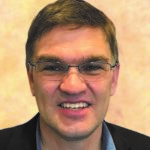
Dr David Smith (Australia)
BBus, BMin, MTh, DTh
David Smith is currently the International Director of IBCM Network and of Australian College of Christian Studies (ACCS). He has a background in a variety of business, management, pastoral, mission, teaching, and academic roles. He is involved in leadership training, preaching and overseas mission, having a heart for people to be gripped by God’s grace and equipped for a life of passionate service. He is the author of Hidden Agendas, The Model Church, and God So Loves.
David and his wife Judy have three children, one grandchild, and are members of Duncraig Christian Community Church, in Perth Western Australia.
Outline
The need for accredited leaders worldwide is an urgent and growing need. This elective looks at what is required to ensure our colleges are able to meet accreditation requirements and how we can collaboratively seek to assist those countries that have no access to accredited training. Weill will consider such areas as:
- Courses
- Subjects
- Assessments
- Learning outcomes
- Course alignment
- Lecturers
- Professional development
Grass Roots Training – Mentoring Others

Christian Ramirez (Colombia)
Christian Ramirez serves the Lord in Bogota, Colombia with his wife Pilar and two children, Gabriela and Daniel. For the past 7 years he has worked along side other brothers starting a semi Virtual Bible Institute that would provide the Spanish speaking assemblies with the tools necessary to equip the believers with Bible, Theology and Ministry knowledge and tools. He has a passion for Biblical exposition, Biblical Counseling and working with couples.
Outline
Many people around the world have been rediscovering the importance of discipleship. Believers all over are realizing that our obedience to the great commission (Matt 28:18-20), a call to make disciples, consists not only on spreading the good news to the whole world, leading many to be baptized as true believers in Christ, but also, on creating those long-term relationships where the teachings of Jesus are taught, modeled and lived together.
As we take heed on how to obey and fulfill this great commission many questions arise. How do we do it? Where do we start? Are we ready to disciple others? What do we teach them? Fortunately, many brothers and sisters have worked on those very important questions and have developed materials, and advice that can help us create consistent and diligent discipleship relationships. An example of this is found in the Elective TRAINING DISICIPLES in this same conference.
Even so, we must be careful not to fall in the trap that leads to see discipleship as a simple exchange of information. Reducing discipleship to a classroom setting, where the basics of Christianity are simply expounded, is a travesty that we need to stay away from. Discipleship is an exchange of life, there is teaching, but there is also example, there is information accompanied by demonstration, there is leading and also love and care.
That’s exactly the reason why, to make good disciples, we should not forget about the other side of of the relationship, the mentors. As mentors, we need to grow ourselves for the role we are called to, as well as learn how to develop others to take that role so the discipleship cycle can continue with even more strength when we are not around.
This elective will examine the character traits, abilities, and tools that we should all be working on to become better mentors. We will examine the biblical teaching and example of those who had mentor responsibilities in the N.T. through the lens of 4 main traits a) Love, b) Leading by Example c)_Perseverance and d) Genuine pastoral care
The elective will discuss the importance of this traits, give examples from the field on how to develop them, and set up a starting point for mentors to create a growth plan which can be used to apply to themselves as well as a tool to develop other mentors.
Preaching – Pitfalls of Interpretation

Dr Raju Kunjummen (USA)
Raju Kunjummen is Vice President and Dean for Academic Affairs at Emmaus Bible College in Dubuque, Iowa. Prior to joining Emmaus as the Head of the Bible and Theology Department, Raju was Associate Professor of Biblical Languages and Old Testament at Moody Theological Seminary-Michigan, part of the Moody Bible Institute. He has also taught as visiting faculty at Cairn University, Langhorne, PA, and South Asia Institute of Advanced Christian Studies, Bangalore, India. He has undertaken several trips to teach students, and others in full time ministry, at Beulah Theological Seminary in Myanmar, and assembly leaders and elders in Kenya, and in Rwanda. He and his wife Susan are parents of four adult children. Raju served for over a couple of decades as an elder in local assemblies in Michigan and California while he lived there. His main academic interests are Greek and Hebrew grammar, interpretation, and biblical theology.
Outline
- The Crucial Question to Ask in Order to Avoid Interpretive Pitfalls
- Unrecognized Presuppositions (of “Authorities”)
- The Blinders of Wrong Preunderstandings
- The Most Familiar Face of Eisegesis
- Language in a Straitjacket
- Challenges of Dealing with Translated Texts
- Lexical:
- Grammatical:
- Textual Issues
- Centrifugal vs. Centripetal Approaches to Contexts
- Issues Pertaining to Prophecy and Fulfillment
- Solution to the Problem
Theology – Eschatology

Dr Xavier Lakshmanan (Australia)
Dr Xavier Lakshmanan is a lecturer in systematic theology and hermeneutic philosophy. Currently he serves as the Dean of Academics at Australian College of Christian Studies, Sydney, Australia.
His publication includes a book, Textual Linguistic Theology in Paul Ricoeur, and several articles in theology. His oncoming book is entitled: Calvin’s Metaphor of Salvation.
He completed his Doctor of Philosophy in theology and hermeneutic philosophy through Charles Sturt University, Australia. His research interest is in theology and philosophy.
Outline
“Eschatological Primacy of the Present as the Presence of the Past and the Future”
As a study of future/last things, the life of eschatology is time. Time shapes and regulates the eschatological reality. This presentation is a study in eschatology. It explores the function of time within the eschatological framework and how it regulates the eschatological reality. The principal issue it addresses is whether the past or the future or the present must be given primacy in eschatological studies. Engaging the eschatological perspectives that maintain the primacy of the past and the future, this research argues for an eschatological primacy of the present as the presence of the past and the future. It will show that the present of a person is the presence of the past and of the future. It is the self-understanding of a self. Thus, the presence of the past and the future in the present as self-understanding can function as a dynamic resource for a meaningful life here and now without losing the reality of the past and the hope of the future.
The presentation consists of the following sections. First, it will explore the primacy of time in eschatology. Second, it will engage the eschatological primacy of the past by analysing consistent, realised, and inaugurated eschatologies. Third, engaging Pannenberg and Heidegger, the study will evaluate the eschatological primacy of the future. Fourth, it will study the eschatological primacy of the present by engaging Paul Ricoeur and Augustine. Finally, the study will substantiate how the present can function as the presence by employing Ricoeur’s psychological interpretation of Augustine’s notion of time. The presentation will be concluded by an illustration from Paul.
Public Faith – History Today
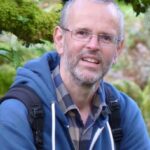
Dr Tim Grass (Australia)
Tim Grass is a pastor-turned-historian from the Isle of Man, who is passionate about the importance of history, both in Christian thinking and in our engagement with contemporary culture. He specializes in the history of the Brethren, and his books include: Gathering to His Name: The Story of Open Brethren in Britain and Ireland (2006); SCM Core Text: Modern Church History (2008); F. F. Bruce: A Life (2011); Generations: British Brethren Mission to Spain 1834-1990 (2011); and Ernest and May Trenchard: Evangelical Mission in Franco’s Spain (2019). The last two have also been published in Spanish. In case you wonder, he came bottom of the class in history at school!
Outline
Human beings are historical creatures: it’s how we are made! If we dismiss history as irrelevant and unedifying, we lose out, for history is our story – and God’s story. This session will explore why an understanding of Christian history is important, and how it can help us in engaging with our neighbours and training leaders.
- Why be passionate about history?
- Some of the dangers of history
- What can history do for us?
- What can we do with history in the public sphere?
- Using history in training others
Formal Training – Funding & Communication

Russell Thorp (NZ)
(Dip Tch, Dip Th, BMin, MTh) and Pearl Thorp.
I was born in Papua New Guinea to missionary parents working in the Sanduan Province with CMML. I currently attend Lincoln Road Bible Chapel in Auckland having served there as an Elder and Chairman of Elders. My background is in mission’s mobilisation, teaching and theological education with some business experience in running motels (Auckland) and trucking company logistics (PNG).
I have been the Dean of Studies at Christian Leader’s Training College (a large interdenominational Bible College in PNG that now offers fully accredited degrees), was senior lecturer and formed (with Ian Payne the Principal) the Internship Programme running it through Pathways College of Bible and Mission, was Dean of Undergraduate Studies at Carey Baptist College, and Missions Director of the NZ open Brethren churches (9 years).
I took on the role of Executive Director of LeaDev-Langham in February 2020 and am enjoying it.
My role in LDL is to facilitate its mission and vision by giving leadership and attending to fundraising and growing volunteer support: to see the people of God in Asia Pacific equipped and engaged in mission through servant leaders who teach/ preach and apply the Word of God appropriately in their context.
I enjoy playing golf, kayaking and hunting when I can.
My wife manages Oliveshoots, an early childhood centre attached to Laidlaw College in Auckland. We have 4 adult children.
Outline
Grassroots Training – Training Elders
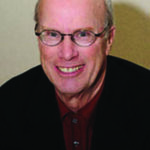
Alexander Strauch (USA)
Alexander Strauch has served in the leadership and teaching ministry of Littleton Bible Chapel (near Denver, Colorado) for over 50 years. He is the author of Biblical Eldership, Paul’s Vision for the Deacons, Acts 20: Fierce Wolves Are Coming, Guard the Flock; Men and Women: Equal Yet Different, Leading with Love, Love or Die, If You Bite & Devour One Another, and The 15 Descriptions of Love (1 Corinthians 13). These books have been translated into over 40 languages. In recent years, he has also made an impact on churches around the world through the ministry of BiblicalEldership.com.
Resources
Training Prospective Elders
Outline
1. THE MANDATE “Entrust to faithful men…”
II. THE MEN “Faithful men, who will be able to teach others also.”
A. Their Character: “faithful” (dependable, reliable)
B. Their Ability: “able to teach others” (competent, qualified, capable)
III. THE MATERIALS “What you have heard from me in the presence of many witnesses…”
“I did not shrink from declaring to you anything that was profitable, and teaching you in public and from house to house . . . I did not shrink from declaring to you the whole counsel of God.” (Acts 20:20, 27)
IV. THE MENTORS “And he gave the apostles, the prophets, the evangelists, the shepherds and teachers, to equip the saints for the work of ministry, for building up the body of Christ.” (Eph. 4:11-12)
“Pay careful attention to yourselves.” (Acts 20:28)
“Practice these things, immerse yourself in them, so that all may see your progress. Keep a close watch on yourself and on the teaching.” (1 Tim. 4:15-16)
Theology – Holy Spirit
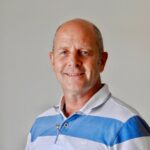
Dr Allan McKinnon (United Kingdom)
Allan is currently the Principal at Tilsley College, Motherwell, Scotland. He served as Academic Dean there for 10 years until 2020. Prior to these posts he worked in Tanzania, East Africa, as a mission worker for 14 years serving the local churches in training and equipping leaders including founding Berea Bible College, Moshi. Allan is currently helping lead a team in a church planting initiative on the south side of Glasgow called Darnley Mill Church. He is married to Jacqui, and together they have three grown children and seven grandchildren.
Resources
Outline
- The value and importance of hindsight
- Looking back briefly at significant “movements”
- The soil from which the Brethren emerged
- The Brethren: a radical* movement of its day
- The early days: Christian Devotedness (1829)
- The early days: Christian Devotedness (1829)
- The leading of the Spirit among the Brethren
- The tensions in Brethren pneumatology (JN Darby)
- Later calls and expressions from the Brethren
- The view of some onlookers
- A closer look…
- Charismatic Brethren…
- The Pentecostals…
- Conclusions: a conversation and a criticism
Public Faith – Creation Care
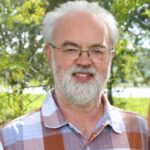
Mark Davies (United Kingdom)
Mark with his wife Shirley served as missionaries in Zambia from 1983 to 2004. Mark served in Bible teaching, developing teaching literature and Bible translation work. He then served for the next 10 years as staff member and then principal of Tilsley College, Motherwell, UK which fulfils one of GLO’s main strategies in training people for mission. While there he completed an MTh (2010) in Biblical interpretation in Glasgow. He has also been serving in the development of the Brethren Training Network. In 2015 he moved to London, continuing to serve with GLO, in establishing stronger connections with churches across England and Wales, in matters of European mission and also training. Mark’s role has three elements (a) GLO Europe Regional Development & Training Director (b) Coordinator for Enable – a national training network across the UK and (c) local church and mission development in London.
Resource
Creation Care Seminar Outline
Outline
The aim of this seminar is to:
- Raise the profile among ourselves, as Evangelicals, of environmental issues and humanity’s response to them as mandated by God: especially given the high priority many nations are giving to these matters in all facets of life, work, education, government and impacts on whole societies.
- Question the priority we give to these matters and how that is reflected in our training and discipleship work.
- 3. Consider how to integrate environmental issue into our training.
- Learn from those most affected by negative environmental impacts and those already integrating these things into training.
1. What is “Creation Care”? Understanding nature and what is for, along with humanity’s place in creation (a biological species yet more than merely a species)
2. Why should we bother?
- The God Factor – it is God’s world not ours
- The Illness Reality – it is chronically in trouble with crisis impending
- The Mission Mandate – humanity commissioned by God to take responsibility
- The Love Command – does “neighbours” only mean humans?
- The Flesh Dimension – implications from the incarnation
- The Creational Completion – what was created good is seed for the new creation
- Treasuring the dying – why Armageddon is no biblical reason not to care
How do we enable students/trainees to have an understanding of the seriousness of the situation, and move them and the people they lead into action to meet deal with it?
3. Where should it fit in our training?
- Environment care as a mark of mission
- Identifying and teaching appropriate values
- Accessing and communicating key knowledge
- Understanding creation care as ministry
4. Key constituents in effective training modules on Creation Care from an Evangelical perspective
Lessons from recent surveys and consultation on environmental issues and creation care in evangelical colleges.
